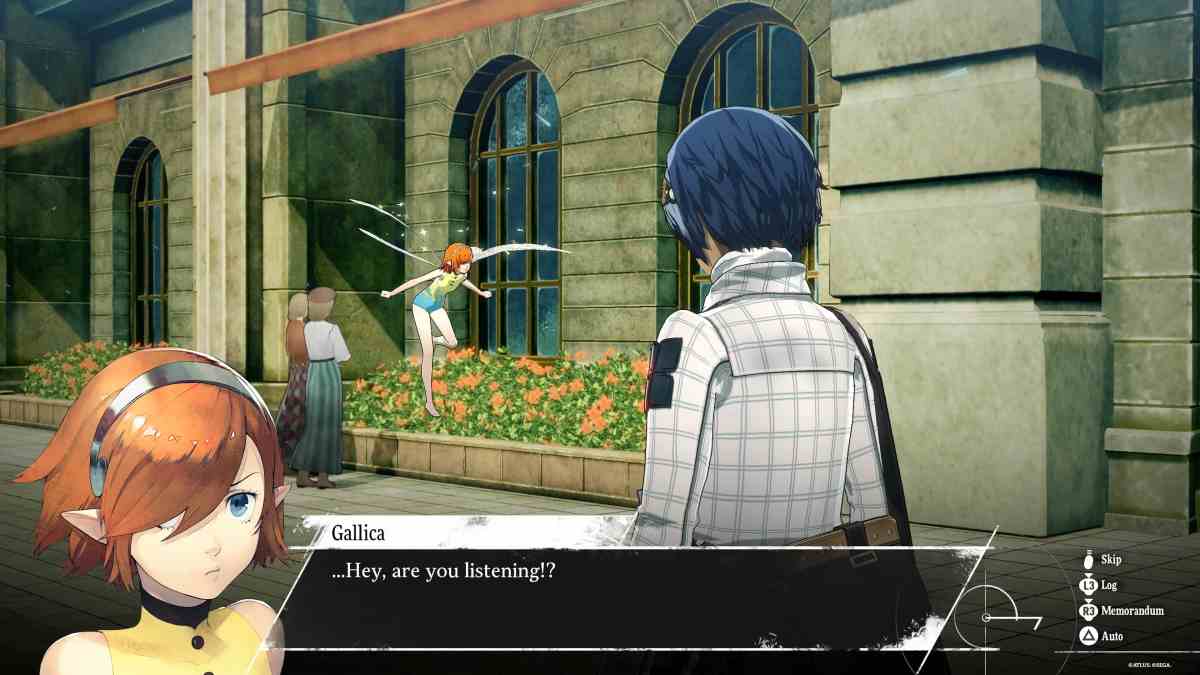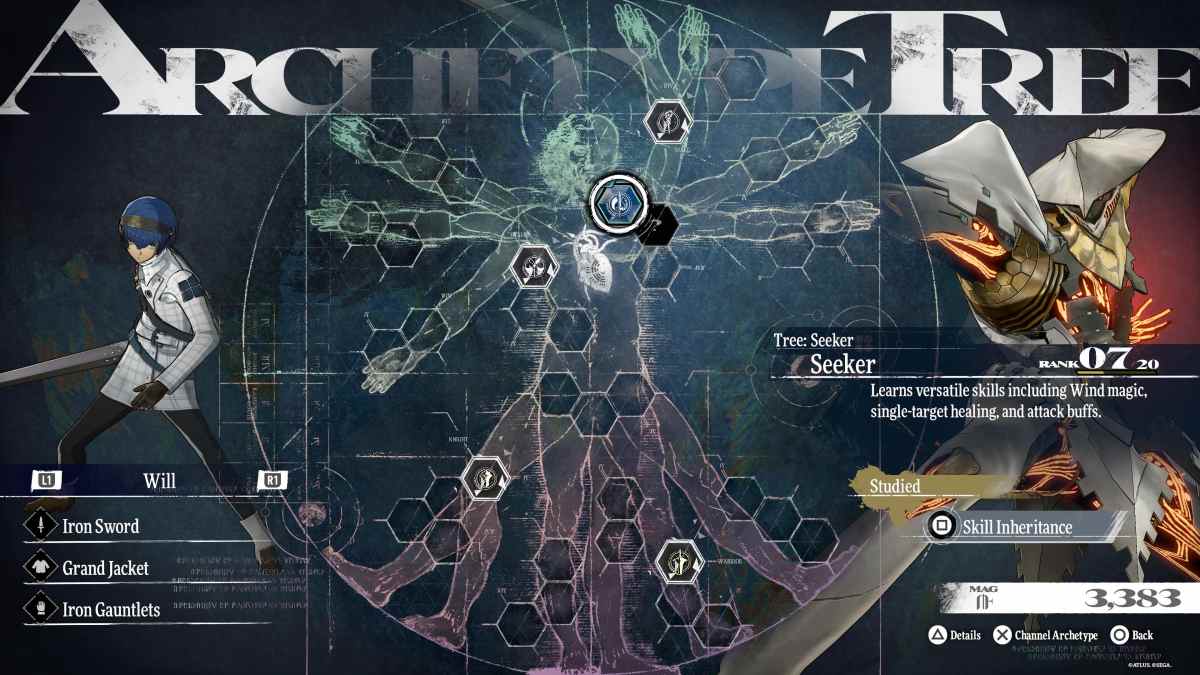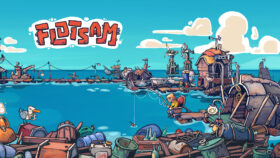The Japanese RPG genre has a reputation for being a bit strange, completely indecipherable to the average passer-by and for creating odd conversations when asked “What have you been playing recently?”
For fans of the genre, however, these quirks are exactly what draws them into hundred-plus hour degustations. The runaway success of Final Fantasy and the Persona series proves that there is absolutely an audience for lengthy games about teenagers trying to kill the physical representation of the concept of self-doubt.
Metaphor: ReFantazio is the latest release from JRPG titan-of-industry Atlus – most notably from the same minds behind Persona 3, 4 and 5. In Metaphor: ReFantazio, you can expect a double-down on the deep combat systems, novel-length story sections and absurdist visual design that made other genre-defining classics into household names.
Players step into the United Kingdom of Euchronia, an imperial fantasy setting and a huge departure from the more familiar contemporary Japanese locations of Atlus’ body of work.
The protagonist explores the kingdom with the help of Gallica, a plucky fairy who is very reminiscent of another classic video game companion. You’ll need all the help you can get, too, because Euchronia is a deeply troubled place, with the most apparent issue being the fiercely enforced “tribal” social hierarchy. Elda, the race of the protagonist, are nearly extinct and also at the bottom of the socio-political heap.
In addition to having to save the world, you’ll also have to deal with some pretty in-your-face prejudice, which sometimes directly mirrors a lot of real-world political positions. The unapologetic political commentary is a core part of the Metaphor: ReFantazio experience, and adds a lot of instant depth and intensity to the narrative.

What can we expect from Metaphor: ReFantazio?
While Metaphor: ReFantazio is the first original game from Atlus’ Studio Zero, it’s impossible to ignore the DNA shared with the Persona series. Combat systems in Metaphor are familiar, with an elemental strengths and weaknesses system which can be abused for extra turns in battle, and large meta-classes (called “Archetypes”) to level up alongside the playable characters.
The Archetypes function as a job system, a mainstay of classic turn-based RPGs which allows you to mix-and-match the skillsets of your party members. So if you really love the red-haired elf lady but would prefer she be a healer rather than a tank, you can just swap out her Archetype and she’ll be slinging spells rather than eating damage.
Archetypes also tie directly into the social aspects of the game. The world of Metaphor: ReFantazio runs on a calendar system, where only so many actions can be taken before time advances. In addition to dungeon crawling or knocking out side-quests, players can use some of their valuable time to get to know their party members a little bit better. Building a rapport with your team can unlock interesting backstory, but also directly ties into the power of their Archetypes – becoming besties is often key to unlocking more power on the field of battle.

Owing to both the importance of relationships and the deeply prejudicial setting, the protagonist may even find that they have to do some self improvement in order for townsfolk to think they are intelligent or virtuous enough to talk to.
This self-improvement also takes time, and with ever-present deadlines looming closer, it becomes a fun balancing act to see not just whether you can clear an obstacle, but how quickly. After all, one less day spent clearing a dungeon is one extra day that can be spent reading books or building friendships or finding medicine for that one mysterious townsperson who implied he might have something valuable in exchange.
The most noticeable absence in Metaphor: ReFantazio is the lack of a casual social “real-world” setting, analogous to Persona’s school attendance. The developers have chosen to go all-in on the dungeon exploration mechanics as the core gameplay loop in a way that allows Metaphor: ReFantazio to create a different vibe from Persona and stand on its own two feet.
What remains, however, is the flawless sense of artistry that sets Atlus titles apart from other games in the genre. Gameplay is visually gorgeous and has an almost hand-painted look at times. Cutscenes are rendered in an anime style and even the menus are dripping in design flair. Accompanied by a score from the phenomenal Shoji Meguro (Persona 4,Shin Megami Tensei III: Nocturne) – Metaphor: ReFantazio is undeniably one of the best looking and sounding games of 2024.
Read: Everything Xbox announced at TGS 2024
The strong foundation set by other Atlus JRPG titles, along with innovation from Studio Zero have created a combination of systems and style that becomes closer to a sub-genre than a single series. Much in the same way that Dark Souls has spawned the “Soulslike” it would not be surprising to see more JRPG titles adopt elements of the Persona/Metaphor games along with the moniker of a “Personalike.” And for passionate fans – this truly is a case of more is more.
If you’re a die-hard fan of Atlus titles or JRPGs in general, you already know that Metaphor: ReFantazio is for you – you might already be thirty-plus hours deep on the game. If you’re not traditionally a big RPG fan, Metaphor: ReFantazio is still worth a look. It’s quirky, for sure, but it’s quirky in a way that feels very fresh and doesn’t require decades worth of context from previous iterations.
Metaphor: ReFantazio is truly unique and benefits from both a rock-solid development pedigree and a vision for original ideas. Genre connoisseurs will find more of what they love and newcomers will have a truly memorable first-time experience.
Four stars: ★★★★
Metaphor: ReFantazio
Platform(s): PC, PlayStation 5, PlayStation 4, Xbox Series X and S
Developer: Studio Zero
Publisher: Atlus
Release Date: 11 October 2024
A code for Metaphor: ReFantazio was provided to GamesHub by the publisher for the purposes of this review. GamesHub reviews are rated on a ten-point scale.





